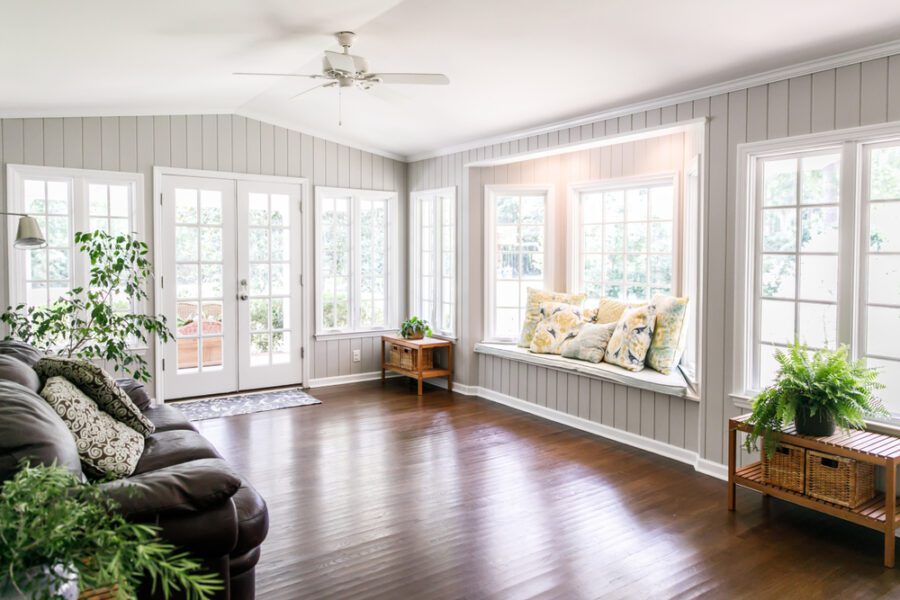
Window Sizes
Most retirees notice the windows when viewing a home. But, depending on your viewing time, you might not know how much natural light you’ll get.
If a home meets all your criteria and you’re interested in putting in an offer, try to visit it once in the later evening and once early in the day. Another thing to pay attention to with windows is to ensure all the bedrooms have large enough gaps to escape in case of a fire.
This is a requirement of all bedrooms by law, and most homes are already built this way. But sometimes renovations are done to add an extra bedroom to a home, and the windows aren’t up to par.
Accessibility
The ability to age in place is a high priority for many retirees. And while accessibility might not be relevant to you right now, retrofitting your home to address potential needs later can be costly.
Single-story homes will eliminate most stair issues, and open floor plans with wide hallways are better suited for someone in a wheelchair or using a walker. We suggest considering a multilevel home but with a primary bedroom on the first floor.
Bathrooms equipped with built-in shower seats, zero-entry showers, higher toilets, and grab bars also mean you can avoid remodeling a bathroom later.
To sum up, a healthy and happy retirement balances your lifestyle and budget. Although making sound financial choices is essential for a retiree, buying a house based solely on its relaxed tax policy, low cost of living or favorable benefits for seniors isn’t always the best move. You should consider the neighborhood based on what’s important to you, your interests, hobbies, and desires for retirement.
Related Article: 6 Major Cities Where Seniors Regret Purchasing a Home









